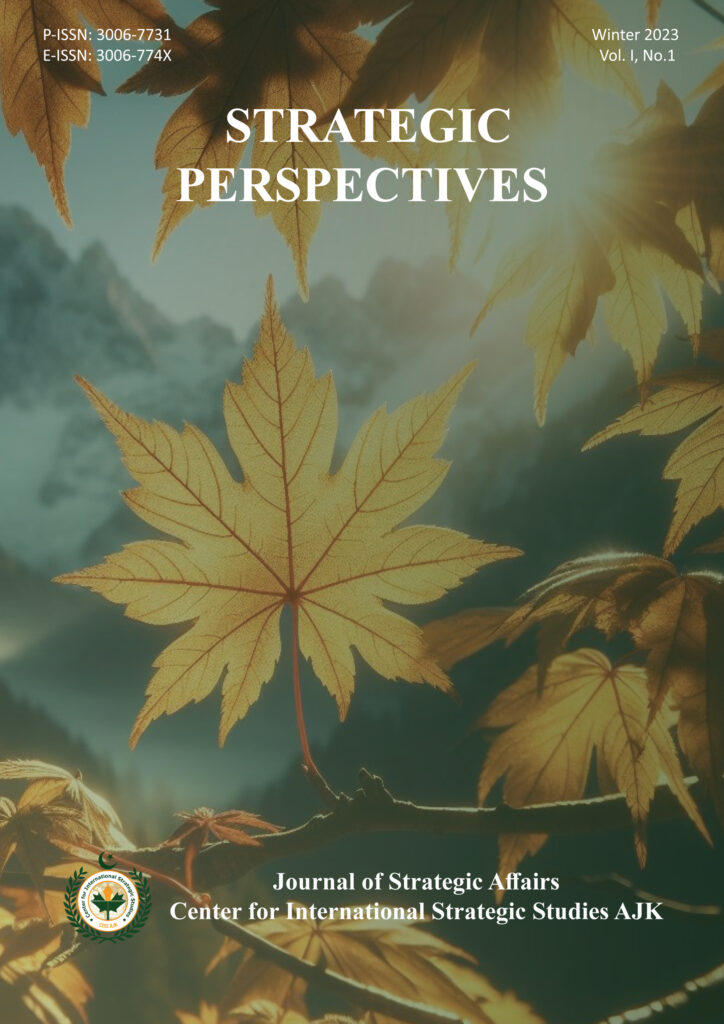Vol. I No. 1 (2023): Strategic Perspectives, Winter 2023
Role of Strategic Communication in the National Security Strategy
Dr. Bilal Zubair & Muhammad Abdul Raffay Shaffi

Published December 29, 2023
Abstract
Over the past two decades, strategic communication has evolved from a corporate public relations tool to a crucial element in national and foreign policy. Its significance is particularly crucial within governmental organizations as they seek to engage citizens on diverse issues, transcending its traditional role. This research investigates the pivotal role of strategic communication within national security strategy. It aims to explore how strategic communication serves as both a preemptive tool for anticipating threats and engaging with disenfranchised social segments, and as a resource for promoting social cohesion and stabilization. The study addresses the challenge of incorporating strategic communication effectively into national security strategies. It contends that traditional security responses must be expanded to include communication as a comprehensive and inclusive pillar, on par with military, political, legal, economic, societal, and diplomatic resources. This study highlights the importance of purposeful communication in aligning with national security strategies to foster social cohesion. The study employs a comprehensive approach to analyze the multifaceted dimensions of strategic communication within the context of national security with special reference to Pakistan. It takes qualitative method to explore diverse functions, effectiveness, and impact on societal perceptions and resilience against evolving threats.
Key Words
Strategic Communication, National Security, Digital Media, Strategic Narratives, Social Cohesion
